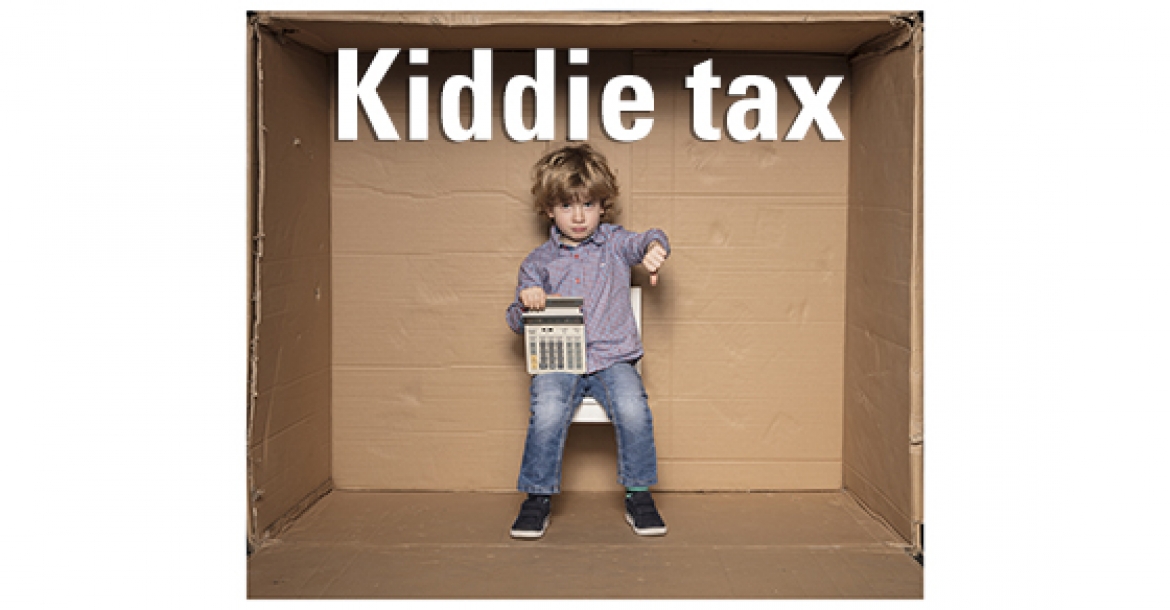Years ago, Congress enacted the “kiddie tax” rules to prevent parents and grandparents in high tax brackets from shifting income (especially from investments) to children in lower tax brackets. And while the tax caused some families pain in the past, it has gotten worse today. That’s because the Tax Cuts and Jobs Act (TCJA) made changes to the kiddie tax by revising the tax rate structure.
History of the tax
The kiddie tax used to apply only to children under age 14 — which provided families with plenty of opportunity to enjoy significant tax savings from income shifting. In 2006, the tax was expanded to children under age 18. And since 2008, the kiddie tax has generally applied to children under age 19 and to full-time students under age 24 (unless the students provide more than half of their own support from earned income).
What about the kiddie tax rate? Before the TCJA, for children subject to the kiddie tax, any unearned income beyond a certain amount was taxed at their parents’ marginal rate (assuming it was higher), rather than their own rate, which was likely lower.
Rate is increased
The TCJA doesn’t further expand who’s subject to the kiddie tax. But it has effectively increased the kiddie tax rate in many cases.
For 2018–2025, a child’s unearned income beyond the threshold ($2,200 for 2019) will be taxed according to the tax brackets used for trusts and estates. For ordinary income (such as interest and short-term capital gains), trusts and estates are taxed at the highest marginal rate of 37% once 2019 taxable income exceeds $12,750. In contrast, for a married couple filing jointly, the highest rate doesn’t kick in until their 2019 taxable income tops $612,350.
Similarly, the 15% long-term capital gains rate begins to take effect at $78,750 for joint filers in 2019 but at only $2,650 for trusts and estates. And the 20% rate kicks in at $488,850 and $12,950, respectively.
That means that, in many cases, children’s unearned income will be taxed at higher rates than their parents’ income. As a result, income shifting to children subject to the kiddie tax won’t save tax, but it could actually increase a family’s overall tax liability.
Note: For purposes of the kiddie tax, the term “unearned income” refers to income other than wages, salaries and similar amounts. Examples of unearned income include capital gains, dividends and interest. Earned income from a job or self-employment isn’t subject to kiddie tax.
Gold Star families hurt
One unfortunate consequence of the TCJA kiddie tax change is that some children in Gold Star military families, whose parents were killed in the line of duty, are being assessed the kiddie tax on certain survivor benefits from the Defense Department. In some cases, this has more than tripled their tax bills because the law treats their benefits as unearned income. The U.S. Senate has passed a bill that would treat survivor benefits as earned income but a companion bill in the U.S. House of Representatives is currently stalled.
Plan ahead
To avoid inadvertently increasing your family’s taxes, be sure to consider the kiddie tax before transferring income-producing or highly appreciated assets to a child or grandchild who’s a minor or college student. If you’d like to shift income and you have adult children or grandchildren no longer subject to the kiddie tax but in a lower tax bracket, consider transferring assets to them. If your child or grandchild has significant unearned income, contact us to identify possible strategies that will help reduce the kiddie tax for 2019 and later years
© 2019

